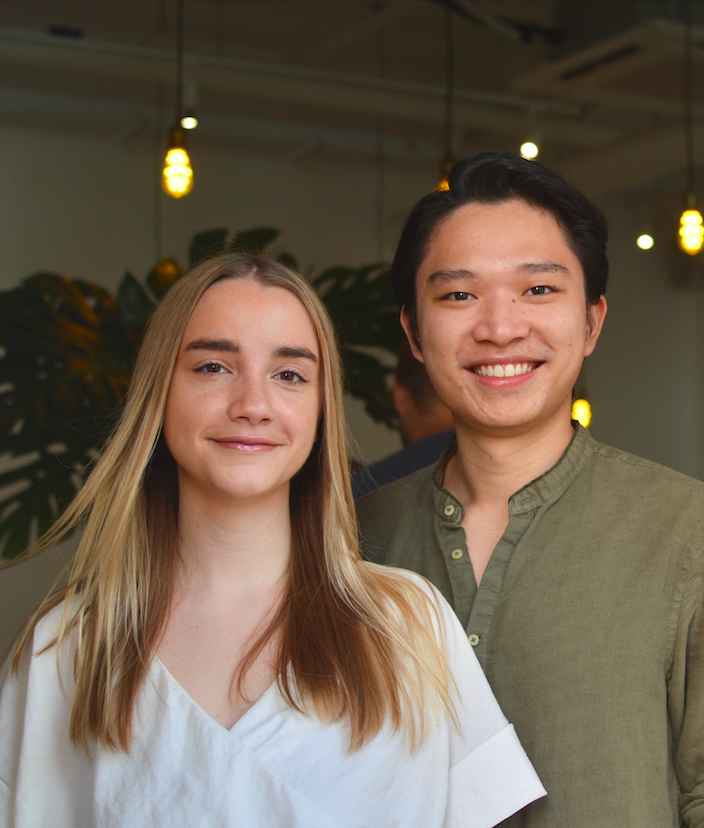When women in the 80s revelled at the prospect of female contraception, nobody told them just what a hassle it would be to get a hold of. In Singapore, birth control and emergency contraception are available only with a prescription — which means an unavoidable a trip to the doctor, followed an often uncomfortable conversation about just why they’re after the pill.
It’s part of why telemedicine start-up Ease Healthcare was co-founded back in May by Rio Hoe and Guadalupe Lazaro, back when the latter was still a university student in Singapore. The advent of telemedicine has enabled people to virtually consult with a doctor and have their prescriptions couriered to them, all without leaving their couches — so why couldn’t the same be done with birth control and emergency contraception?
But beyond recognising and fulfilling a market need, the start-up says that they want to run Ease as a “socially-driven company”.
“Ease stemmed from our frustration with the current system,” says co-founder and chief financial officer Rio Hoe. “Trying to access sexual and reproductive health in Singapore, we just felt like there were a lot of barriers.”
As Hoe explains, since birth control is gated behind a mandatory prescription, women in Singapore have to schedule a visit to the doctor every time they want to get the pill, or to refill an existing prescription, wasting valuable time off work or school; because it isn’t considered an illness, women aren’t issued a medical certificate for doing so.
That’s not to mention the social discomfort that some women say that they’ve experienced while trying to obtain birth control in Singapore. “Some women have shared, for example, that the doctor they got was male, and he made them feel uncomfortable, or he made inappropriate comments during their consult,” Hoe says.
With Ease, all women have to do is to is schedule a 10 minute telephone consult with the start-up’s female physician, who will issue a prescription according to their needs and have it delivered to their home — all within 24 hours.
“We want to democratise the access of sexual health products by reducing the barriers that women face in the traditional healthcare system,” explains Hoe.
Since the start-up’s launch back in May, Ease is set to introduce several new products to its roster: aside from several different brands of birth control and emergency contraception, Ease will soon launch their new at-home STD test kits.
The kits, which have been approved by Singapore’s Health Sciences Authority and classified as Class A medical devices — meaning that they are “low-risk” — enable women to collect samples from the privacy of their homes. These samples will then be mailed to Ease’s clinical partner, Parkway Health Laboratory, who will analyse and produce the results within days. No shame-faced twiddling in a wait room. No discomfiting experiences with male doctors.
And they don’t want to limit their work to just women. Hoe says that Ease has plans to expand into the realm of male sexual health — think products to treat erectile dysfunction, STD tests and treatments, and even acne solutions — things that she says men “might not come down to clinics to talk about, but are still important”.
“We feel like there’s a lot of stigma surrounding sexuality and sexual health in Singapore — people are afraid of being judged, and as a result, refrain from talking about these things, even in situations where they do need help,” says Hoe, who adds that Ease also has an educational page on their website with useful FAQs and information about birth control.
He adds: “We want to provide a space where people feel comfortable to bring up these issues and get the help they need, and at the same time, possibly destigmatise the topic.”
As an activist for sexual and reproductive rights, co-founder Lazaro developed the idea for Ease in the hope it would provide a “comfortable space” for people to bring up issues related to sexual health, and to get the help that they need.
Says Hoe: “Even though we felt that we were contributing through activism, there needed to be a huge change in the system that we didn’t think could be achieved through just dialogue,” says Hoe. “There needed to be proper action — so we just decided to come up with a new system of our own.”


